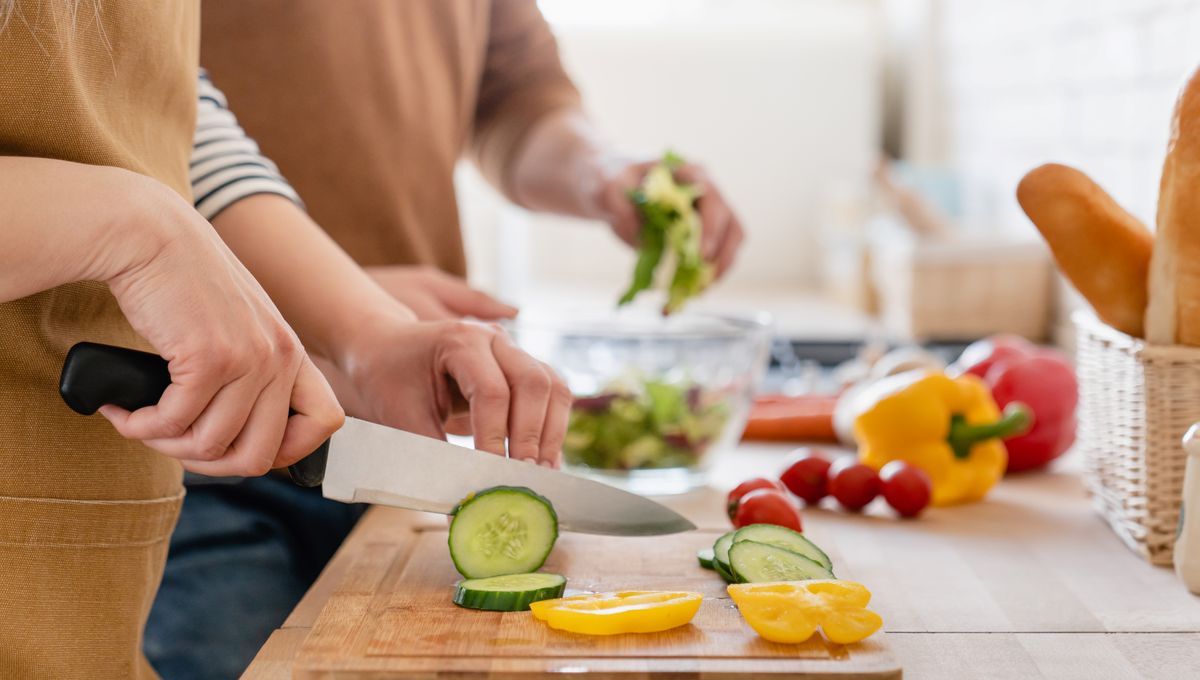
The humble cutting board, whether plastic, wooden, or glass, is a staple of the kitchen. That being said, if they’re not looked after properly, they can quickly become much more problematic by harboring some of the pesky bacterial species that can cause food poisoning.
So just how much bacteria can be found on the average cutting board? Quite a lot, as University of Arizona microbiologist Dr Charles Gerba told BBC News back in 2012.
“Usually there are about 200 times more faecal bacteria on the average cutting board than on a toilet seat,” said Gerba. That doesn’t mean that someone (or something – we’re looking at you, cats) is secretly pooping on it though; the bacteria usually originate from raw meat products.
Whether or not they hang about on the board and end up causing you a harrowing 48 hours in your bathroom depends on two main things: cross-contamination and cleaning. Although it’s commonly thought that one type of cutting board is safer than the other (it’s not), these factors can catch you out regardless of whether it’s made from plastic or wood.
Cross-contamination
Cross-contamination is when bacteria from a food or a surface spread to other foods. In this case, it could occur if you use a single cutting board for preparing all kinds of foods, like chopping up raw meat and then food that isn’t going to be cooked, like veggies for a salad or bread.
If you thought it was common sense to at least wash it in between, you’ll have to think again. A study of 70 households from the UK’s Food Standards Agency (FSA) found that on 25 occasions, people used a cutting board to prepare meat, fish, or poultry, and didn’t clean it before preparing another food group.
The risk of cross-contamination doesn’t just lie in food preparation on the same board either – the study also found that on several occasions, people put their plates, saucepans, and utensils on the unclean board.
To avoid cross-contamination from cutting boards (particularly if you haven’t got the time to wash them up on the go), the US Food Safety and Inspection Service (FSIS) recommends using two separate boards: one exclusively for preparing raw meat, poultry, or seafood, and the other exclusively for fresh produce and bread.
Cleaning a cutting board
If they’re insufficiently cleaned, cutting boards can have harmful bacteria on the surface regardless of what material they’re made from. So how exactly are they supposed to be cleaned?
Plain old water won’t do the trick, although that doesn’t mean people don’t do it. The FSA study found that out of the 140 occasions where people prepared meat, fish, or poultry on a cutting board, 20 percent of the time, users only gave the board a quick rinse with water, heightening the risk of cross-contamination.
Instead, the FSIS suggests that all types of cutting board should be washed with hot, soapy water each time they are used and rinsed off with clear water, followed by either air drying or patting with clean paper towels – regular kitchen towels are a paradisaical breeding ground for bacteria. After this, boards can also be sanitized using a diluted chlorine solution and left to stand for several minutes, before rinsing off and drying.
It’s also important to keep an eye on any cracks, grooves or well-worn areas of cutting boards. These can eventually get so deep that they’ll hold bacteria no matter how carefully you clean, so be sure to throw a board out once it reaches this point.
All “explainer” articles are confirmed by fact checkers to be correct at time of publishing. Text, images, and links may be edited, removed, or added to at a later date to keep information current.
Source Link: Is Your Cutting Board Safe?